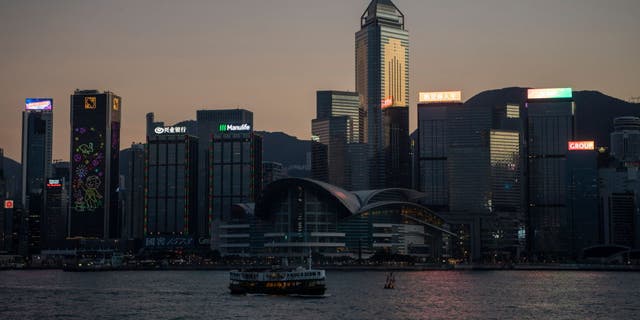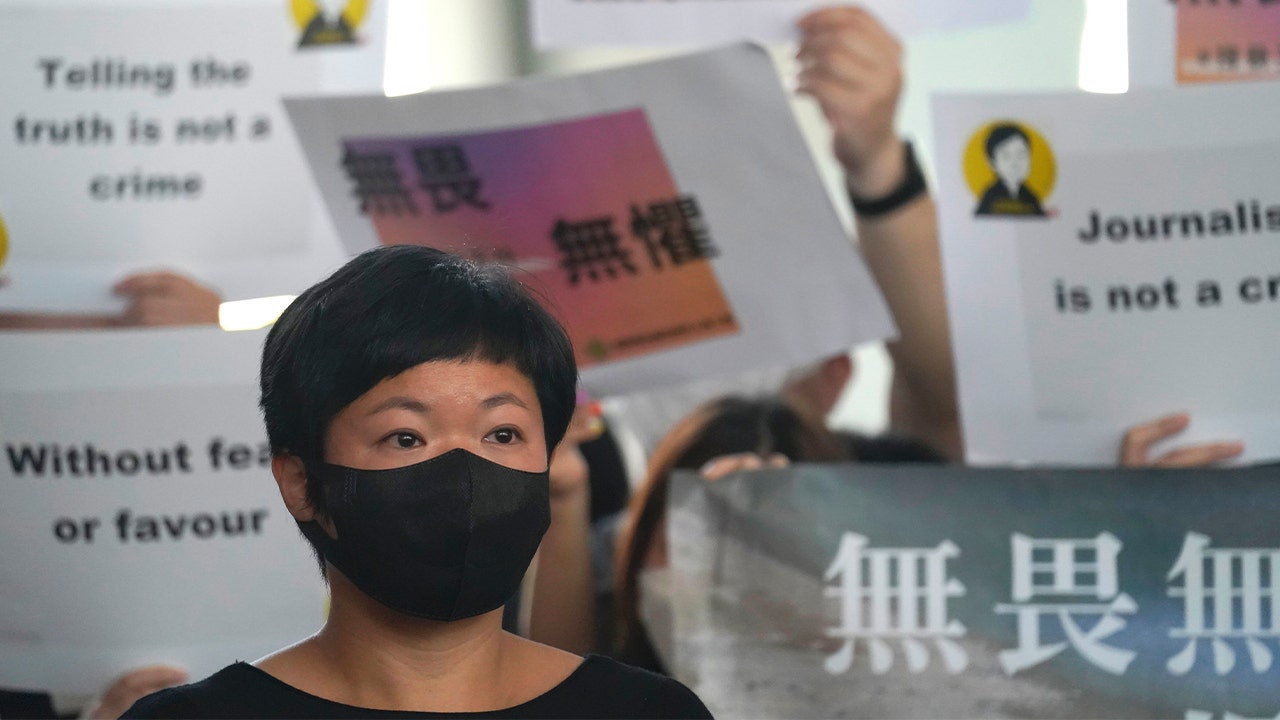A monumental moment took place in Hong Kong Monday as an award-winning investigative journalist found guilty of deceiving the government won her appeal in a rare court ruling upholding media freedom in the Chinese territory.
Bao Choy was convicted in April 2021 after she gained access to vehicle ownership records for journalistic purposes despite stating in an online application that she would be using the information for “other traffic and transport related issues,” according to The Associated Press.
At the time, Choy was working on a documentary about a mob attack on protesters and commuters inside a train station during the anti-government protests in 2019, and was trying to track down the perpetrators.
She was also fined 6,000 Hong Kong Dollars ($765) for two counts of making false statements, prompting her to describe the ruling as “a very dark day for all journalists in Hong Kong” and sparking outrage over the city’s shrinking press freedom.
HONG KONG NEWSPAPER WILL STOP PUBLISHING WORK BY POLITICAL CARTOONIST AFTER ANTI-GOVERNMENT DRAWINGS
Veteran investigative journalist Bao Choy won her appeal in Hong Kong two years after she was found guilty of deceiving the government during her work on “7.21 Who Owns The Truth.” (AP Photo/Kin Cheung, File)
On Monday, the city’s top court unanimously ruled in her favor in a written judgment – overturning Choy’s conviction and slashing her sentence.
“The issues of falsity and knowledge were wrongly decided against the appellant because her journalistic investigation into the use of the vehicle on the dates in question did fall into the wide catchall category of ‘other traffic and transport related matters’,” the judgment read.
The judges also wrote Choy’s use for the records was “not an irresistible inference that she knew that to be false,” even if it didn’t fall into the catchall category.
Choy told reporters outside the court she was not only happy that she won her appeal, but that the judgment recognized the importance of the city’s constitutionally protected freedom of press and speech.
“Over the last few years, we might have found that many things have disappeared quietly,” she said via The AP. “But I believe our beliefs in our hearts can’t be taken away that easily. No matter I win or lose today, the persistence (demonstrated) over the last few years is already a meaningful thing.”

Journalist Bao Choy, center, told reporters outside the courthouse she was happy to learn of the judgment overturning her conviction, adding that it recognized the importance of the city’s constitutionally protected freedom of press and speech. (AP Photo/Louise Delmotte)
HONG KONG POLICE ALLOW PROTEST FOR FIRST TIME IN YEARS—UNDER STRICT RULES
The documentary in question, “7.21 Who Owns The Truth,” was co-produced by Choy and ultimately won the Chinese-language documentary award at the Human Rights Press Awards in 2021. Judges deemed the film “an investigative reporting classic,” honoring it for chasing the “smallest clues” and”interrogating the powerful without fear or favor.”
In the crackdown on dissent following the anti-government protests of 2019, vocal media outlets Apple Daily and Stand News have been forced to close, and some of their top managers have been prosecuted, the AP reported.
Apple Daily founder Jimmy Lai is facing collusion charges under the national security law enacted in 2020 and two former Stand News editors are charged under a colonial-era sedition law used to silence critical voices.
CLICK HERE TO GET THE FOX NEWS APP
Hong Kong returned to China’s rule in 1997 after nearly 150 years as a British colony. Critics of the occupation say Beijing’s promise that it would keep the city’s freedoms is dwindling, especially after the establishment of the national security law.

After nearly 150 years as a British colony, Hong Kong returned to its status as a Chinese territory in 1997. (Vernon Yuen/NurPhoto via Getty Images)
Hong Kong ranked 140th out of 180 countries and territories in Reporters Without Borders’ World Press Freedom Index released in May.
The Associated Press contributed to this report.


